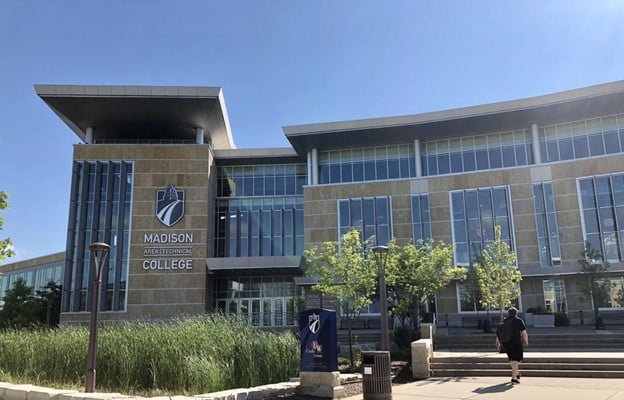Understanding Junior/Community Colleges

The American education system provides many choices for higher education to international students. There are junior/community colleges (often referred to as JuCo’s), colleges, universities and liberal art schools. Many international students are not familiar with the American education system and therefore, may not understand what a JuCo (Junior College/Community College) is.
So, what’s the difference between a JuCo and a four-year institute? A JuCo is a two-year school that offers reasonably priced higher education as a pathway to a four-year degree. Completing a 2-year degree at a JuCo is called an Associate’s degree.
The advantages to attending a JuCo is that students can save money by attending a community college for two years and then transfer to a 4-year university where they will complete their degree. JuCo’s also often have lower entrance criteria than universities/colleges. This means students that didn’t get the marks necessary in high school to study further, have the opportunity to spend 2 years improving their marks to get a Bachelors degree.
As JuCo grow in popularity, they are serving more individuals both locally and from around the world.

The main difference between a JuCo and a university is that at a JuCo you will take two years to complete an Associates Degree, while Bachelors degrees at a university/college take four years to complete.
Why does it take four years to complete a degree at a university but only two years at JuCo?
At four-year institutions students spend their first two years taking general education requirements, also known as “gen-eds,” such as math or history, regardless of what their area of concentration will be. This means that during the first two years of university, whether your major course of study is architecture or biology, for example, you’ll be required to take the same general education requirements. It will not be until your third and fourth year that you focus on your upper-level requirements which will be specific to your chosen degree program.
Instead of doing the first two years at a university, some students will elect to do those two years of general education requirements at a Juco first and then transfer to a traditional university to complete the last two years of their degree.
Students who begin their studies at a JuCo are ready to enter university at the junior level, meaning they only need an additional two-years before earning a Bachelor’s degree. Their degree will then be awarded by that university/college.
Campus Size
Besides the time-frame needed to complete a degree, another big difference between a JuCo and a university is campus size. Universities are much larger than community colleges; some universities in the United States have over 50,000 students. Since JuCo’s do not have as many students on campus this means there classes are smaller and there are sometimes fewer organized campus groups and activities.
While most universities offer on campus housing, some JuCo’s do not. This however isn’t a problem as many have communities of housing around them that have developed to house students. This off campus housing is also often more affordable than on campus. Many schools will also have resources to help students find off campus housing.

National Junior College Athletic Association
The National Junior College Athletic Association (NJCAA) regulates intercollegiate athletics of JuCo’s.
It is the JuCo counterpart of the National College Athletic Association (NCAA), which oversees athletics at four-year institutions. The organization’s goal is to promote athletics as a valuable component of the educational experience at JuCo’s. The NJCAA has 530 member colleges participating in 15 men’s and 13 women’s sports. There are 50 national championships and nine football bowl games.
The NJCAA has recently signed a media partnership with ESPN to televise some games – it should not be taken for granted the level of competition or opportunities in the NJCAA!
JuCo students have an opportunity to participate in numerous intercollegiate sports. Presently, the following sports are sanctioned by the NJCAA:
- Basketball
- Bowling
- Cross country
- Golf
- Half marathon
- Indoor track and field
- Lacrosse
- Outdoor track and field
- Soccer
- Swimming and diving
- Tennis
- Football
- Baseball
- Softball
- Volleyball
How can we help? Sign up with BRUSA Sports today, for a free evaluation, and we would love to assist with your USA scholarship process.

